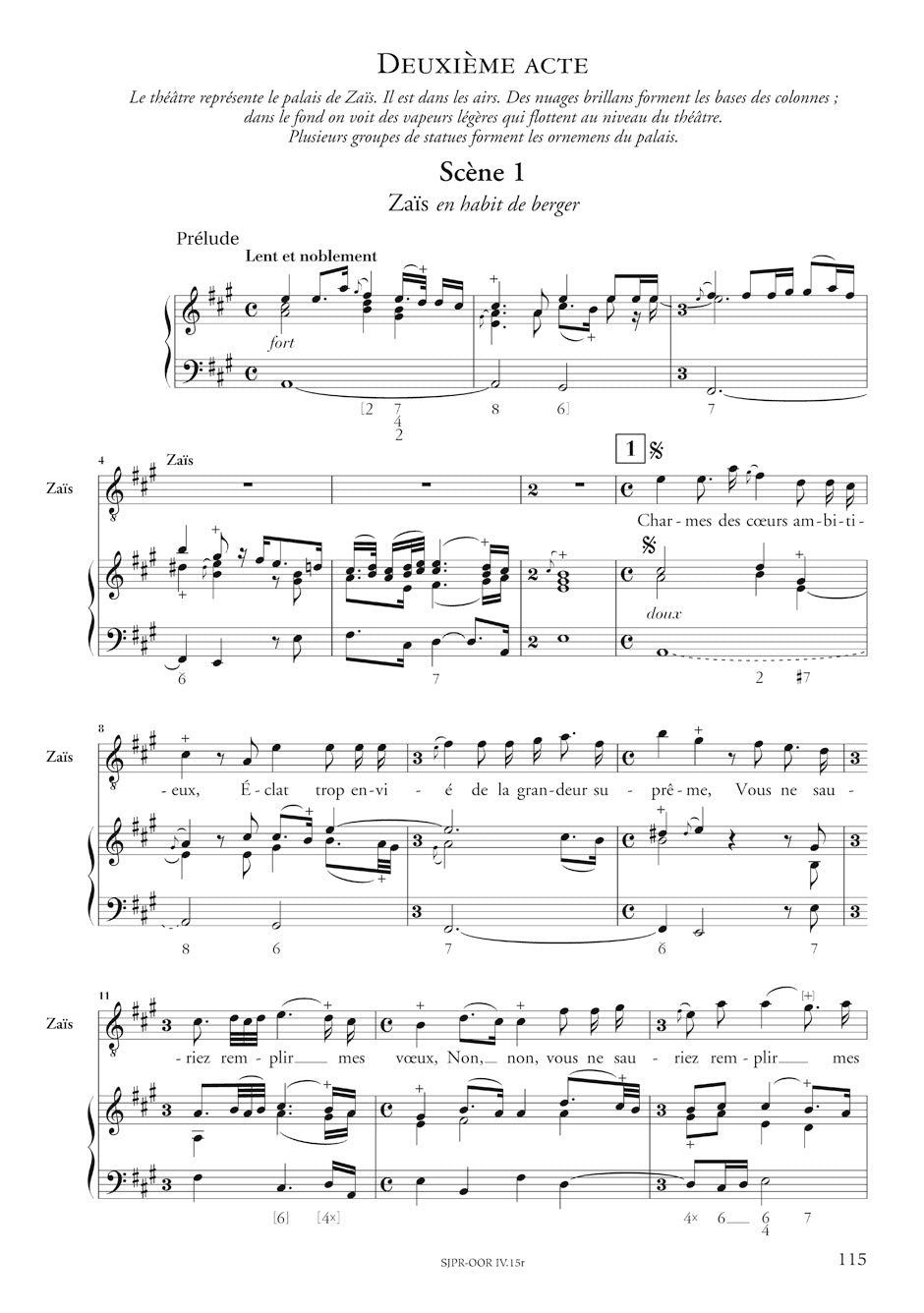

BARENREITER - 345062
Rameau Zais (1748) -Ballet héroique in a Prologue and vier acts-
Composer: Jean-Philippe Rameau
Publisher: Bärenreiter
Instrumentation: Voice
Format: Vocal Score
Binding: Paperback
Dimensions: 10.6 in x 7.5 in
Pages: 356
Rameau Zais (1748) -Ballet héroique in a Prologue and vier acts-
Juilliard Store
144 West 66th Street
New York NY 10023
United States
Choose options
Rameau Zais (1748) -Ballet héroique in a Prologue and vier acts-
Juilliard Store
144 West 66th Street
New York NY 10023
United States
Rameau Zais (1748) -Ballet héroique in a Prologue and vier acts-
Juilliard Store
144 West 66th Street
New York NY 10023
United States
Editor: Sadler, Graham
Arranger: Saint-Yves, François
Orchestral scoring : 4SSolo/ASolo/3BSolo/Mixed choir/ballet/2Fl-Picc/2Fl/2Ob/2bassoon/Tamb/Str/Bc
Language(s) of work: F
Language(s) of text: F
Product format: vocal score, Urtext edition
Binding: Paperback
Pages / Format: XVI, 356 - 27,0 x 19,0 cm
Like most of Rameau’s operas, “Zaïs” was extensively revised during the composer’s lifetime and afterwards. Revisions already began during the first rehearsals and continued until the first performance. The composer and the librettist Cahusac finally used the Easter period in 1748 to work on those revisions; as well as structural changes and musical substitutions, these included some substantial additions to vocal and instrumental movements. The version which was performed after Easter is more convincing, both musically and dramatically.
In contrast, the revivals of 1761 and 1769 – the first after Cahusac’s death, the second after Rameau’s – contained drastic cuts including the entire prologue.
For the new volume in the “Opera Omnia Rameau” the version from Easter 1748 has been chosen as the primary source. For performances, a choice can be made between this and the original version; a series of insertions links all the passages with another.
